Category: Cardinal Quarter
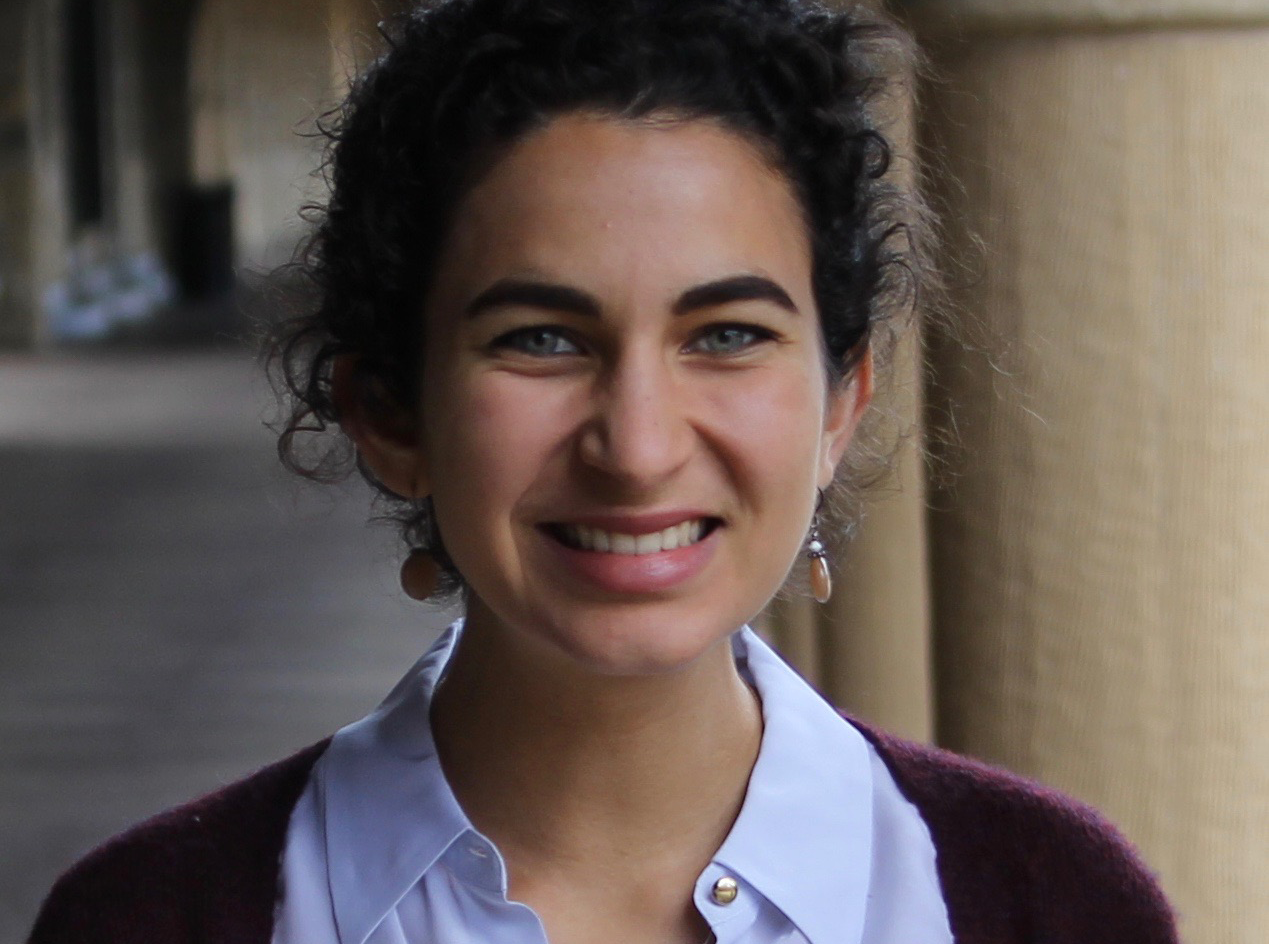
Above all, persistence
By Ryanne Bamieh, ’18 (History)It was a Thursday morning when we got the call. My partner and I had been investigating the case for the past two weeks, and we still didn’t have anything useable. Our client was accused of a hit-and-run, just in front of a small apartment building in a Brooklyn neighborhood. We’d been trying to reach the owner of the apartment building for the past two weeks, hoping that we’d be able to obtain video footage of the crash. Our quest had taken us to a hospital in the Bronx, to a corporate building in Manhattan, and on many trips from our office in downtown Brooklyn to the scene of the alleged crime, as we tried to track down the video.

Eventually, someone had passed our phone number to the building super, who had gotten permission from his boss to call us and give us access to the footage. It was only when we got back to our office that we were able to watch the video and confirm exactly what our client told us: that another man had been driving the car.
As an intern at Brooklyn Defender Services (BDS), I was able to learn about my dream career while also helping to defend our clients—indigent men and women of Brooklyn who had been accused of a variety of crimes. I interviewed witnesses, photographed scenes, and became very familiar with standard video surveillance protocol. Through it all, I learned that the most important quality of an investigator was persistence. It could be endlessly frustrating to follow up promising leads, only to discover that they were dead ends. Yet, the times when our work paid off made all the fruitless calls and long trips around the city worth it.
I know the path to becoming a public defender will be difficult, but if I’ve learned anything from my time at BDS, it’s that I’m persistent, and persistence can carry me along even the most difficult paths.
Ryanne is part of the 2017-18 cohort of the Public Service Honor Society, a leadership program for seniors run by the Haas Center. Her experience with BDS was through a Cardinal Quarter summer fellowship.
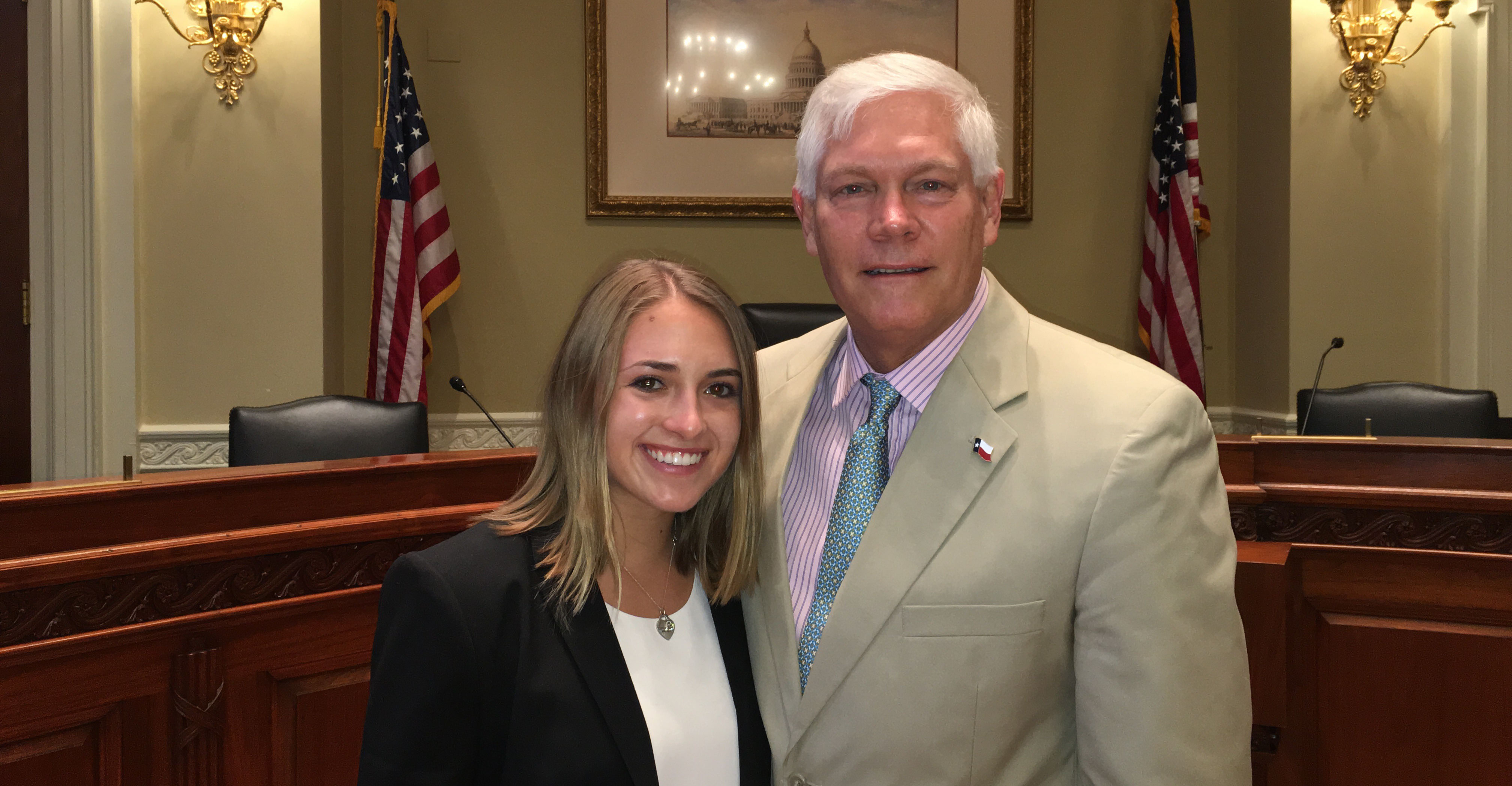
Thinking like a congressman
By Vanessa Ochavillo, ’18 (Human Biology), Cardinal Service Coordinator
Last summer, Kennedy Placek, ’18, interned at the Washington, D.C. office of Republican Congressman Pete Sessions of Dallas, Texas, an experience that she said enhanced her understanding of the political landscape beyond the San Francisco Bay Area, and the processes behind the policies that shape our lives in the United States.
“I went there to be as enriched as I could, and I felt that his office would do that for me,” Kennedy said.
When deciding where she wanted to do her Stanford in Government policy internship, Kennedy knew that she wanted to work for the head of a committee that fascinated her. Congressman Sessions chairs the Rules Committee, which oversees every piece of legislation that goes through Congress, crafts the legislation, and determines the rule that other bills will come to the House floor under. It is one of the most powerful Congressional committees.
Weeks into her internship, she earned a unique opportunity to join the Congressman’s team tasked with reviewing the 2018 National Defense Authorization Act (NDAA) and the 2018 Appropriations Act. For the NDAA alone, she researched its more than 400 amendments and summarized each one for Congressman Sessions, recommending how he should vote based on his support for other bills and his alliances with other members of Congress.
“I had to ask myself what would Pete do or what would Pete think,” she recalls. “There were some amendments that I would have personally wanted to strike down or vote ‘yes’ on, but I knew Pete wouldn’t,” she said.
Kennedy attributes her ability to work on the policy-making team to the support she received from the office staffers and the opportunity to attend congressional hearings, where she witnessed first-hand how politics play out. Though there were the occasional heated hearings, like a senate intelligence committee hearing about possible Russian interference in the 2016 U.S. presidential election, nearly all of the hearings were orderly and decisions were made.
But what struck Kennedy most from these meetings was the sight of her congressman shaking hands with Democrats. “When I saw that, I thought, ‘That should be the face of U.S. politics, someone reaching across the aisle,’” she said.
When she was not researching or sitting in on congressional hearings, she was responding to constituents’ letters and giving tours of the Capitol to those who flew in from Texas. On these three-hour tours, she interacted closely with people she said she would have never met had she not done this internship. It was fulfilling to share her passion for the U.S. Capitol and connect with families full of Texas-pride—some of whom had not ventured beyond their city borders before coming to D.C. and came from different backgrounds and political beliefs.
“What I appreciated working for a congressman not from my state or my area was that I was exposed to an area of the country that I really didn’t know much about,” she said. “I wish other people would see that and would push themselves to work outside of their ideological and political comfort zones.”
Kennedy Placek, ’18 (political science), was a 2017 Stanford in Government stipend recipient.
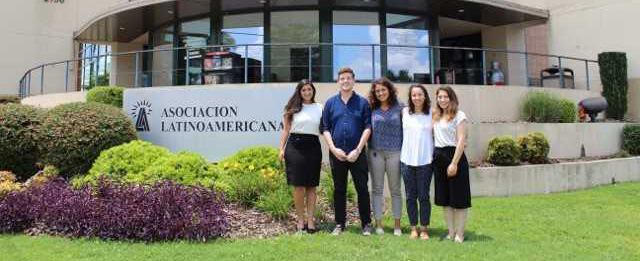
Advocacy in action
By Lydia Zemmali, ’20 (undeclared)
A Georgia legislator sits to my right. To my left, a representative from Forward.US, a nationwide advocacy organization, is opening the meeting with the current situation: DACA’s fall is imminent.
I am sitting in on a Latin American Association strategic meeting where Atlanta-based advocacy organizations, faith leaders, corporate businesses, and state legislators are discussing what to do should President Trump choose to rescind the Deferred Action for Childhood Arrivals, or DACA. They are taking their cue from the DACA recipients present in the room, asking “How can we best serve you?” A DACA recipient, an accomplished lawyer, responds, “I need to know you will do everything in your power to get between me and the ICE officer trying to deport me.”

The message is met with swift action. People write press releases, develop emergency preparedness plans, and arrange meetings with congressional representatives to work for the DREAM and American Hope Acts. In task forces, champions of social justice and businessmen work alongside each other to show the Atlanta community a united front in support of our DREAMers.
I had never witnessed collaboration of this kind. In that meeting, I had a profound realization that I want to continue be in these types of rooms—rooms in which people from many sectors of society concert their efforts, sharing their networks and expertise to bring about change.
Every single day, the Latin American Association showed me how to break down barriers for Latinos living in Atlanta. Each resume completed or Medicaid application filed is evidence of their impact. They showed me that, when run by culturally competent people with a connection to those they serve, a nonprofit can also be a community hub. My time there impressed upon me the importance of advocacy in any career path I choose, and my fellow coworkers embodied the kind of advocate I want to be: one who is responsive, culturally competent, and collaborative with different stakeholders.
Through Community Service Work-Study, Lydia worked as a Family Well-Being intern at the Latin American Association in Atlanta, Georgia.
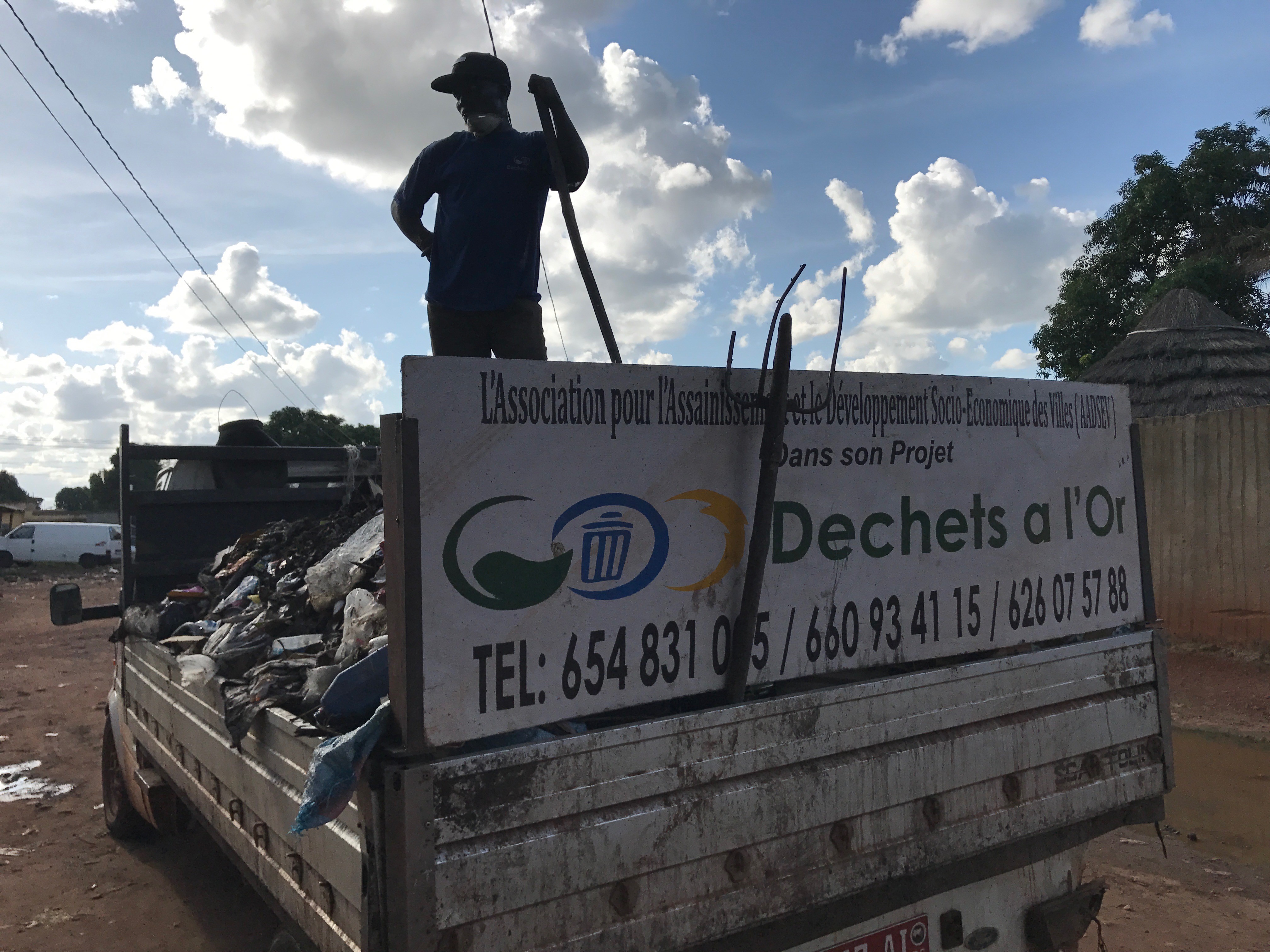
Cleaning things up at the office
By Vanessa Ochavillo, ’18 (Human Biology), Cardinal Service Coordinator
“Imagine a couple of guys and some garbage cans,” Cameron began.
This is Dechets à l’Or—or “Garbage to Gold” in English—an environmental startup in Guinea that collects local people’s trash.
Every morning, garbage collectors go into the neighborhoods in the city of Kan Kan, trucks bumbling down pothole-ridden roads, providing a service that locals have long felt that the country did not adequately provide.
Cameron Woods, ’20, sometimes joined the trash collectors. Others times, he accompanied the fee collectors as they went door to door, requesting payments. On these collection trips, Cameron filled out the paperwork, quietly following along with his elementary French and what little he had learned of Malinke, the local Guinean dialect.
He spent most of his time playing observer, which proved to be appropriate for his official role as “staff support.” After weeks of learning the organization’s operations, when he proposed changes that organized customer data for easier analysis, he hoped this would make work simpler for the staff.
“The best moments would be when someone would come up with an idea on their own of how to collect data, and I would help them do that,” he said.
More than process improvement, however, he wanted to understand the people. He spent weekends and lunches with coworkers to get to know them. During collection rounds, they would play language games, where he shared English phrases in exchange for Malinke.
A film fanatic with a particular interest in the African diaspora, being an observer suited Cameron well. And the internship reaffirmed his pursuit in both areas.
Musing about a career in film, he can “literally picture how a Netflix documentary on Dechets à l’Or could really open people’s mind to the crisis of waste management.”
 “We are visual creatures. We respond so strongly to stories and to emotion when you put all those things together—the music, strong visuals, stories, characters. They hit you in a certain way that will get you to care, to care about other people’s struggle, other people’s joy,” he said.
“We are visual creatures. We respond so strongly to stories and to emotion when you put all those things together—the music, strong visuals, stories, characters. They hit you in a certain way that will get you to care, to care about other people’s struggle, other people’s joy,” he said.
One day, while on their usual collection routes, he and his coworkers got to talking about the roads, and they asked him if the streets in America were like the streets in Kan Kan.
“I had to explain the nuances of a society that they were completely unfamiliar with,” he said. “On a daily basis, I was filling in the blanks of their worldview while they were simultaneously filling in mine.”
Cameron wants to return to Africa. Maybe next time, he will come with a camera.
Cameron Woods, ’20 (African and African American Studies), was a 2017 African Service Fellow.
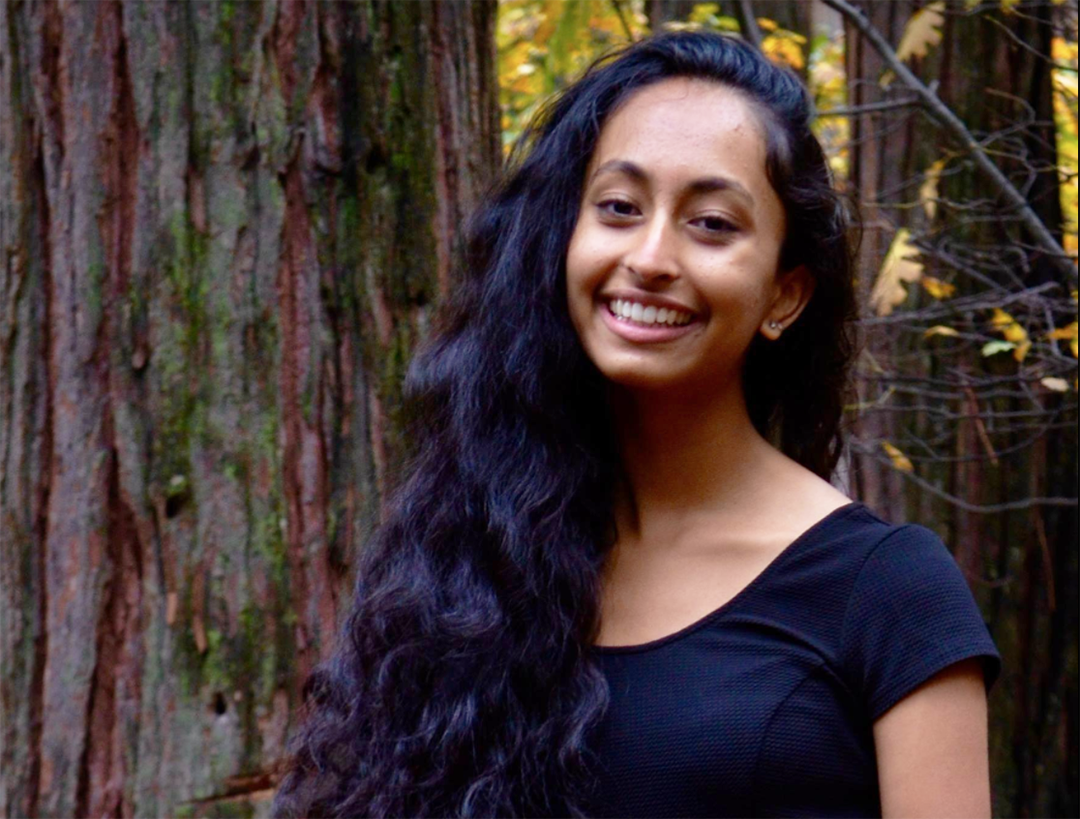
Technology aiding advocacy
By Mayuka Sarukkai, ’19 (Symbolic Systems)
The landlord won’t remove lead paint from the walls – which means health problems for the kids, which means frequent hospital visits, which means no time to work, which means we can’t pay rent, which means we’re being evicted. This is the story recounted by one woman over a housing hotline, but the vicious cycle of landlord abuse and displacement is a narrative shared by countless tenants who are facing the overwhelming reality of gentrification in New York City.
My summer fellowship at JustFix.nyc, a Brooklyn-based nonprofit creating technological tools to fight for housing justice, was a deep dive into this tangled world of housing in NYC. Over the course of nine weeks, I worked on building – from outreach to user research to design to deployment – a new online referral directory designed to provide targeted referrals to best-match legal service providers and community advocates for these tenants facing housing crises. This summer was the first time I truly felt I had access to an arsenal of tools and experiences to bridge real human stories and intentional product development, and to understand what it really means to work at the intersection of humans and computation to create a positive community impact.
Interested in spending a summer doing public service? Find out more about Cardinal Quarter.
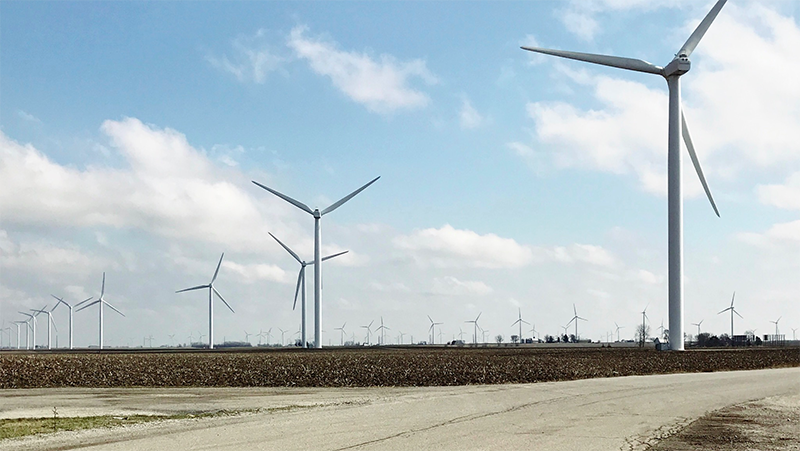
No small task
 By Noah Garcia, M.A. ’15 (Public Policy)
By Noah Garcia, M.A. ’15 (Public Policy)
I hopped off a cozy rush hour “L” train and walked into the office at the city’s Civic Opera Building for the first time. Any hazy ideas I had about the work quickly came into sharp focus: Drafting written comments and reports. Liaising with other environmental organizations and utilities. And reading way too much email.
When I accepted my fellowship with the Natural Resources Defense Council (NRDC) in Chicago, I was excited and anxious about the fellowship’s broad clean energy scope. I felt that the classes I had taken in college had prepared me, at a high level, for work that lay ahead. But so much learning took place on the job.
Moving the needle on clean energy development in the Midwest is no small task. I feel proud to have worked on NRDC teams that drove bold renewable energy and energy efficiency legislation in Illinois. I feel proud to have helped spur electric vehicle adoption in Ohio through multi-party agreements to fund critical infrastructure. And I am in awe of what I have seen my colleagues accomplish. Through it all, Stanford has been the supportive platform I have used to explore these areas of interest in the environmental sphere.
Noah was a 2015 Schneider Fellow. Schneider Fellows work at leading U.S. nongovernmental organizations (NGOs) to tackle sustainable energy challenges.
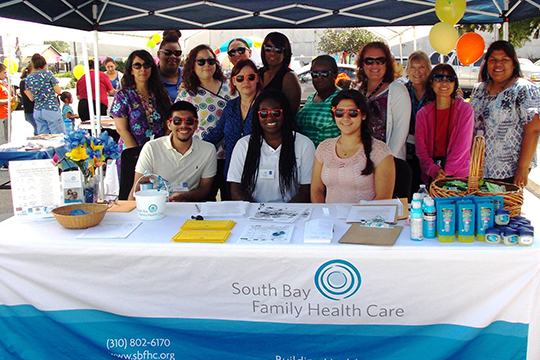
Health resources for families in need
By Miguel Ceniceros, ’19 (Human Biology)
As a woman got her blood pressure checked, her young daughter ran up to my table and smiled wide as she pointed at one of the coveted balloons we were handing out at South Bay Family Healthcare’s National Health Center Week Health Fair. I handed her one, and she ran to the next table to learn about the importance of brushing her teeth.
In the summer of 2016, I had the opportunity to volunteer with South Bay Family Health Center, engaging with community members and health providers. I learned about inequities in women’s and children’s health, and the efforts of health providers to bridge these gaps.
To say that South Bay Family Healthcare is just a health center is an egregious understatement. This organization, with its wonderful and dedicated staff, provides relief and resources to hundreds of families who would otherwise have little or no healthcare available to them. The caring staff taught about the value of teamwork, and the importance of advocating for those who need and ask for help. I am honored to have worked with an organization dedicated to the health and well being of the community.
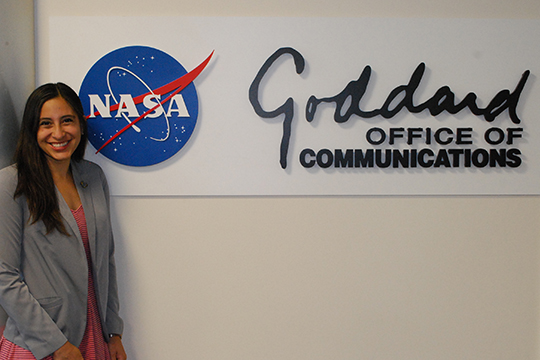
Engaging new audiences
By Patricia Flores, ’18 (Communication)
After my first day at NASA Goddard Space Flight Center in Greenbelt, Maryland, I felt like I was in way over my head. I wasn’t a STEM major, so how was I expected to write and create content about highly technical science information? Additionally, how could I approach my work through an angle that made me feel like I was making some sort of impact?
With the help of mentors and by not being afraid to ask questions—even ones that seem extremely basic—I discovered that I could find the way in which my work for NASA Goddard felt meaningful to me. Specifically, the projects I worked on to increase NASA’s Spanish outreach were very fulfilling. I had the opportunity to interview three amazing and incredibly intelligent Latinx engineers about their research and write feature-length profiles on each of them in Spanish. I translated outreach material, did voice-overs for mission videos, and crafted some tweets for our @NASA_es Twitter page. At the end of the summer, it was so rewarding to know that my work distilled very technical information on extremely relevant science topics to an audience that normally doesn’t engage in these spaces.
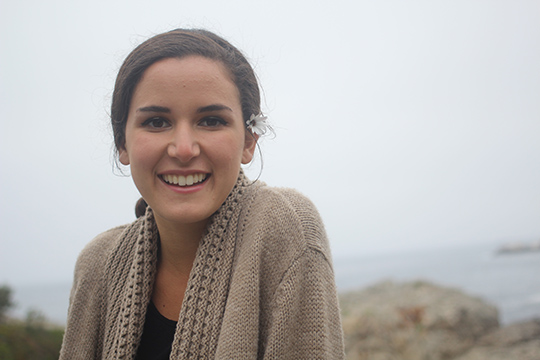
Words matter
By Marly Carlisle, ’17 (Political Science)
“People are homeless – they’re not ‘homeless people.’” Tod Lipka, the Executive Director of one of the largest homeless service providers in Los Angeles, said this at a panel I moderated titled “Abolishing Homelessness: It’s Not How, It’s When.” He was emphasizing the critical importance of highlighting a person’s humanity when speaking about homelessness. I think about homelessness on a daily basis – I wrote my thesis about it, I teach a course about it, and I serve on the board of directors of a homeless service provider. When discussing the issue of homelessness, it is easier to think about people who are homeless as abstract numbers and statistics, rather than considering their individual humanity. The mindful practice of saying “people who are homeless” instead of “homeless people” reemphasizes the individual experience of homelessness. It reminds me that “they” are “us,” but with different life circumstances. They are our neighbors, our community members, our fellow citizens. Us. I’ve moved away from “the homeless” and “homeless people,” opting for a more personal, human approach when discussing homelessness.
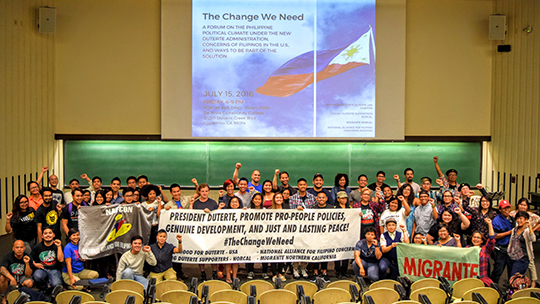
Becoming part of the neighborhood
By Ian Macato, ’19 (Symbolic Systems)
The Filipino Community Center in the Excelsior neighborhood of San Francisco serves to provide a safe space where Filipino families can access services, meet, and hold activities. The Excelsior neighborhood has the second highest population of Filipino/a people in San Francisco, and they are mostly low-income, working class immigrants. As true community members, we organize with partner grassroots organizations striving to fix the root causes of unemployment, unaffordable housing, and poverty in the neighborhood and in the Philippines. The center’s purpose is ordinary, helping community members to access government services and benefits. But serving as an intern at the FCC means to become a part of the Excelsior neighborhood and immerse oneself in the stories, experiences, and lives of the community members we serve. Through learning how to serve our kababayans (the Tagalog word for fellow compatriots), by helping them to get their much deserved government benefits, we also become their friends, counselors, and community members. We take part in their story and empathize with their struggle, knowing ours is interconnected.
